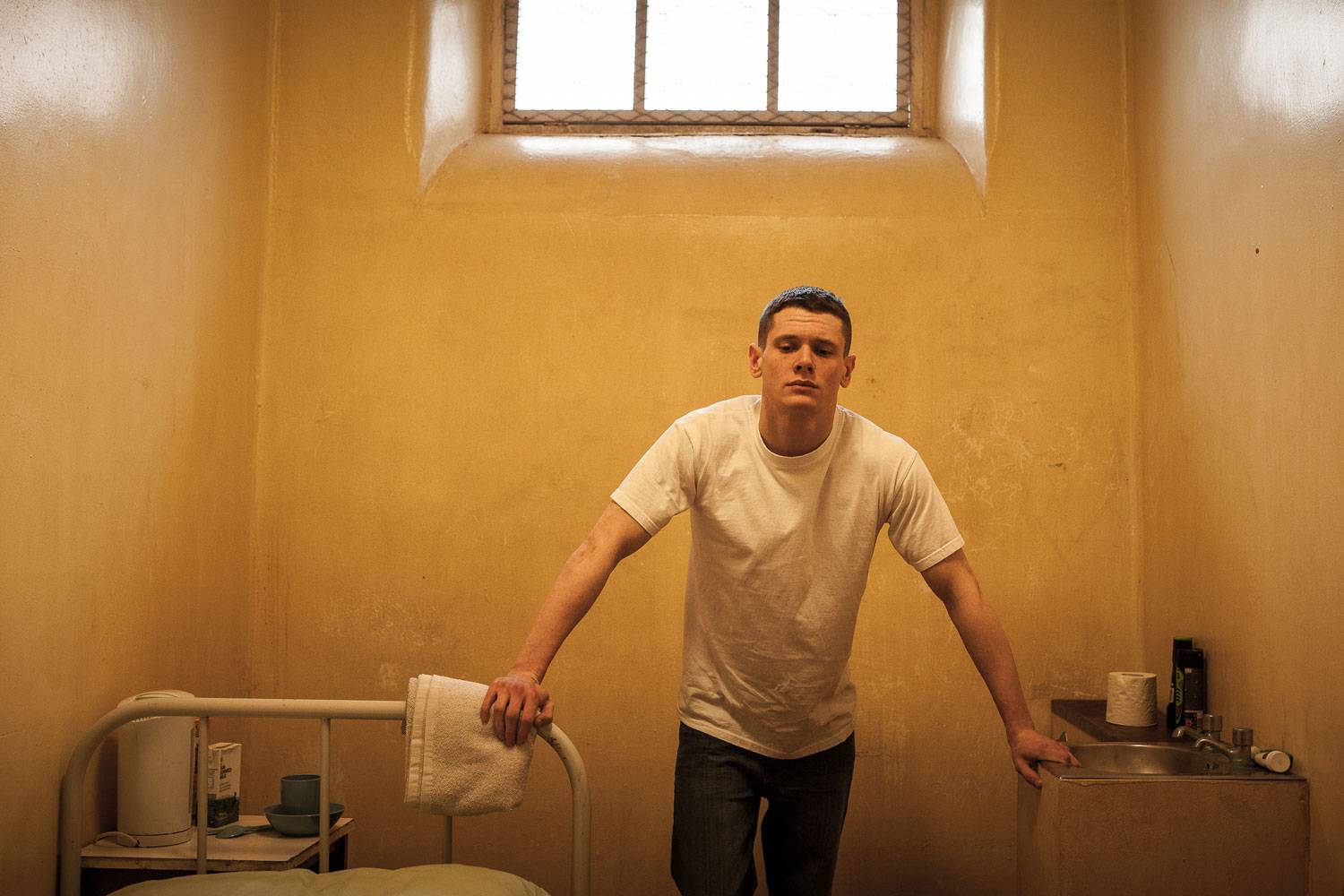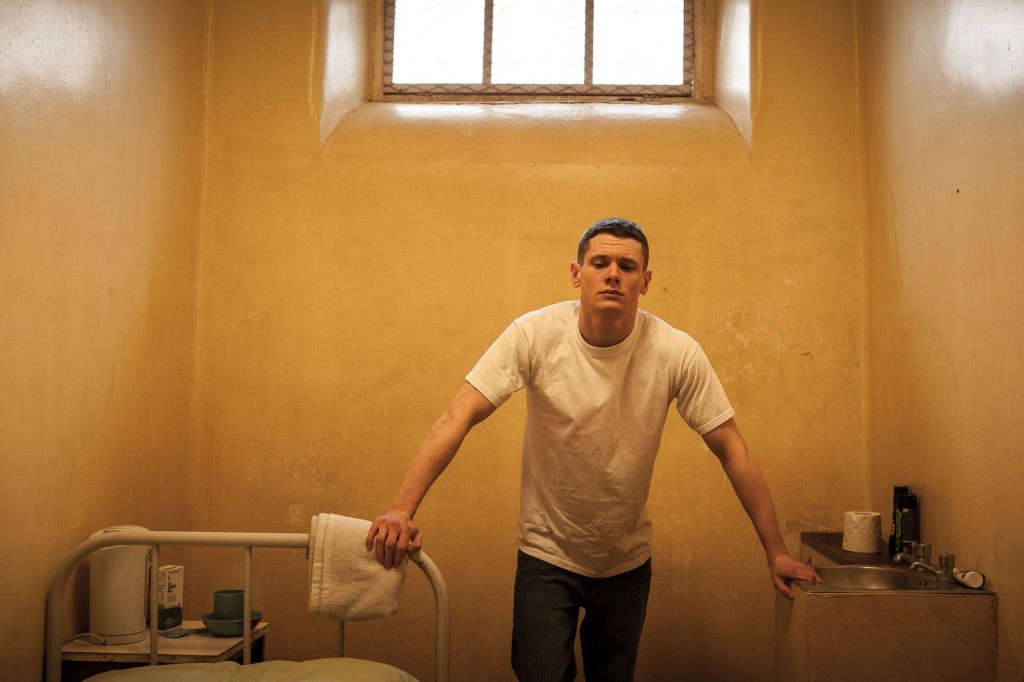Muscular and raw, Starred Up is a film with teeth- both dramatically and literally, as one scene in particular bears out. Director David Mackenzie pulls no punches and produces a film laden with atmosphere that reeks of intimidation, violence and stale prison air.
Starred Up is a story of father and son, with Eric (O’Connell) finally reunited with his long absent father, Neville (Mendelsohn). The difference between this and other family dramas is that this one takes place behind bars. From the first shot to the last, the audience never leaves the prison grounds. The film begins with the arrival of Eric at the prison, upgraded from a young offenders’ institution to an adult jail due to the teenager’s propensity for violence- hence the film’s title ‘starred up’. Once there, Eric finally catches up with his lifer father, whom he has not seen since he was a young child. The relationship is threadbare and offers Eric no recourse from his current path towards self-destruction.
Mackenzie allows the audience no adjustment period; Starred Up’s violence is instantaneous and brutal from the beginning. It recalls some of the earliest and best works of Martin Scorsese in this way – Taxi Driver, Raging Bull and Goodfellas. There is a palpable air of menace in these films that surrounds certain actors, chiefly De Niro in the first two and Joe Pesci, among others in the latter. There is the same knife edge of uncertainty that permeates from O’Connell’s screen presence in Starred Up. At the same time the film’s young lead helps the audience to get past this ugliness by showing another side to the character.
Rather than through a budding relationship with his father, Eric begins a slow and difficult character transformation through his attendance of a therapy group led by Oliver (Friend), a voluntary counselor at the prison. This leads to a worsening relationship with his father, who has his own anger issues, albeit with a slower fuse. Both are caught up in a power struggle within a corrupt prison and their relationship is stretched to breaking point.
Previously the best thing in both Killing Them Softly and The Place Beyond the Pines, Ben Mendelsohn continues to show himself to be one of the finest character actors working today, giving performances of tremendous weight and personality. His turn as Neville gives genuine humanity to the tortured soul that lies behind this prison hard man. O’Connell is equally accomplished, managing to eke out the audience’s sympathy towards a character that is at first appearance so hard-bitten and abrasive.
From a dense haze of intimidation, mindless violence and claustrophobia, an emotionally wrought drama emerges thanks to Jonathan Asser’s stripped-down, subtly nuanced screenplay and star turns from the film’s father and son leads. Mackenzie’s film is a triumph of battered and bloodied machismo with the third act delivering the crucial narrative and emotional punch to justify the prison pressure cooker the audience have been through for the previous 90 minutes. Richard Davis






